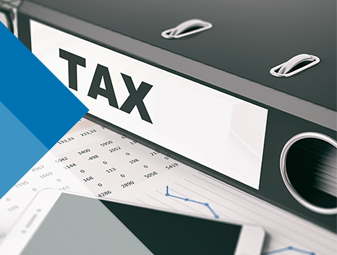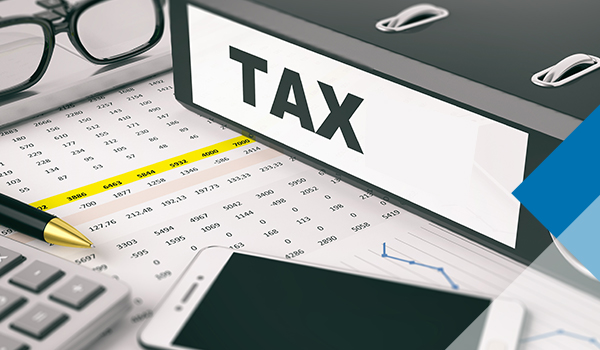 Tax compliance can get overwhelming, especially during this time of the year.
Tax compliance can get overwhelming, especially during this time of the year.
- On 15 July 2024, the South African Revenue Service (SARS) opened the 2024 individual tax filing season. This season will continue until 21 October 2024 for non-provisional taxpayers and until 20 January 2025 for provisional taxpayers.
- By no later than 30 August 2024 (since 31 August 2024 falls on a Saturday), the first provisional tax submissions and payments must be completed for all provisional taxpayers with a tax year-end of 28 February 2025.
- The submission period for the trust 2024 tax returns is from 16 September 2024 to 20 January 2025.
- Don’t forget the monthly compliance requirements for VAT201 and EMP201 submissions, amongst others.
-
- Insights and Observations from the start of the 2024 filing season:
- 16 July 2024 the SARS Commissioner Mr. Edward Kieswetter held a media briefing giving some feedback on how the first day of the filing season went as well as some information regarding the auto-assessments.https://www.sars.gov.za/media-release/media-statement-commissioner-edward-kieswetters-address-on-filing-season-2024/Some interesting facts:
- Well over 5 million taxpayers were auto assessed.
- Refunds of about R10 billion to 1.6 million of the auto-assessed taxpayers had been paid out until the media briefing.
- On the YouTube channel the Commissioner mentioned:
- that SARS received about 57 000 calls and could only assist 15 000 calls, and
- there were 1.9 million logins on eFile on 15 July 2024.
- Top tips on the SARS website:
- “Make sure that they have all the supporting documents and receipts for the expenses they want to claim, such as invoices, bank statements, travel logs, etc.
- Check the tax return forms and guides on the SARS website to see what types of expenses are deductible and what are not, depending on their source of income and tax code;
- Fill in the relevant sections of their tax return with the correct amounts and categories of their expenses — it is important not to overstate or understate expenses, as this may result in penalties from or audits by SARS.
- Keep a copy of their tax return and supporting documents for at least five years in case of any queries from or disputes by SARS.
- Visit the SARS TV channel on YouTube to view our How-to videos.
- Be on high alert for phishing and scams — do not click on any links received via SMS or email; and
- Remember that banking detail changes or confirmation thereof can only be done via SARS eFiling by logging into one’s profile or through a branch visit (appointment only).”
- Link to all the updated guides for filing season 2024 on the SARS website:https://www.sars.gov.za/latest-news/updated-guides-for-filing-season-2024/
- The company tax returns.There were delays in the availability of the 2024 ITR14 returns due to SARS being in the process of updating the returns according to the latest tax legislation changes.
These returns can be requested from 29 July 2024.
- 16 July 2024 the SARS Commissioner Mr. Edward Kieswetter held a media briefing giving some feedback on how the first day of the filing season went as well as some information regarding the auto-assessments.https://www.sars.gov.za/media-release/media-statement-commissioner-edward-kieswetters-address-on-filing-season-2024/Some interesting facts:
- August 2024 provisional tax submissions and payments.Provisional tax is a way to pay income tax in advance to reduce the risk of incurring a large tax debt later. Therefore, provisional tax should not be viewed as separate from income tax but rather as a prepayment towards it.
- As mentioned above it is important to note that 31 August 2024 falls on a Saturday and therefore:
- all the provisional tax returns (IRP6) must be submitted not later than 30 August 2024 and
- all payments must be made as early as possible on 30 August 2024 to ensure the amount paid reflects on the SARS statement as paid on 30 August 2024.
- Who pays provisional tax?
- Any person, (other than a company) who earns income that is not remuneration, an allowance or advance as contemplated in section 8(1) or who earns remuneration from an employer (for example, an embassy is not obligated to register as an employer, and many non-resident employers who employ staff in South Africa do not register) that is not registered for employees’ tax.
- Note – A Trust is included under the definition of a “person” in terms of the Income Tax Act, no. 58 of 1962 (the IT Act) and is therefore regarded as a taxpayer and could be a provisional taxpayer as well. If all the income earned in the trust is distributed to its beneficiaries, the Trust is not a provisional taxpayer for that tax year.
- any company (other than those specifically excluded); and
- any person notified by the Commissioner of Sars.
- The following are specifically excluded from the payment of provisional tax:
- Public Benefit Organisation (PBO’s) approved by SARS.
- Recreational clubs approved by SARS.
- Any Body corporate, share block company or association of persons not contemplated in section 10(1)(e) of the IT Act.
- Any natural person who does not derive income from the carrying on of any business, if in that relevant year of assessment –
- The taxable income does not exceed the tax threshold; or
- The taxable income from interest, dividends, foreign dividends, rental from letting fixed property and remuneration from an employer that is not registered for employees’ tax does not exceed R30 000.00.
- Non-resident owners of charterers of ships and aircraft who are required to make payments under section 33.
- Any small business funding entity.
- Deceased estates.
- How provisional tax works.Two advance payments: taxpayers need to make at least two advance payments during the year, based on their estimated taxable income.
- First payment: The first payment is due within six months from the start of the assessment year. For example, if the assessment year ends on February 28/29, the first provisional tax payment is due on or before August 31.
- Second payment: The second payment must be made by the last working day of the assessment year, which is the last business day of February.
- Voluntary third payment: There’s also an option for a third payment, which is voluntary. Companies with a year-end of February and any individual (other than a company) have until the last business day of September to make this payment. For others, it should be made within six months of the end of the assessment year.
- Determining your liability.Below is the direct link to the 2025 Guide for provisional tax and point 5 on pages 4 to 6 gives a detailed explanation and examples on how to calculate your provisional tax liability.https://www.sars.gov.za/wp-content/uploads/Ops/Guides/GEN-PT-01-G01-Guide-for-Provisional-Tax-External-Guide.pdf
- As mentioned above it is important to note that 31 August 2024 falls on a Saturday and therefore:
Conclusion
- Income tax return filing dates for the 2024 Filing Season are:
- Auto-assessment notices: 1 July 2024 to 14 July 2024
- Individual taxpayers (non-provisional): 15 July 2024 to 21 October 2024
- Provisional taxpayers: 15 July 2024 to 20 January 2025
- Trusts: 16 September 2024 to 20 January 2025
- Companies – within 12 months from the end of the financial year.
- Provisional tax:In conclusion, provisional taxpayers must request and submit IRP6 returns through the SARS eFiling platform for both the first and second periods. To accurately determine your provisional tax liability, it is essential to calculate the tax payable based on your estimated taxable income for the current year of assessment.
If you have any enquiries, please do not hesitate to contact Adri Britz at abritz@fhbc.co.za
Disclaimer
This article is for informational purposes only and should not be considered as legal advice. Although all efforts have been made to provide accurate information, the FHBC group of companies, nor any of its employees take responsibility for any mistakes or omissions that may have slipped in. When in doubt, please contact a registered tax practitioner.
- Insights and Observations from the start of the 2024 filing season:

